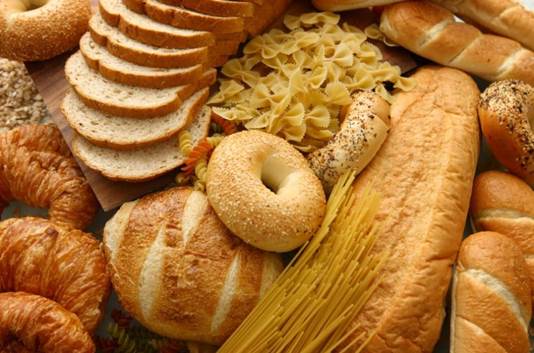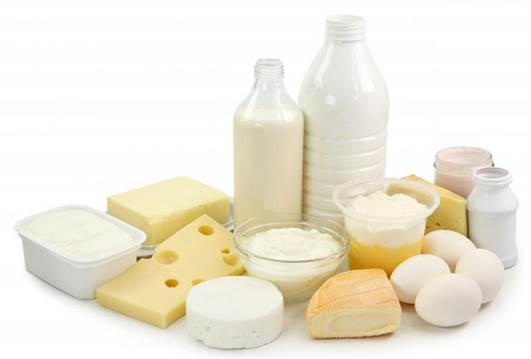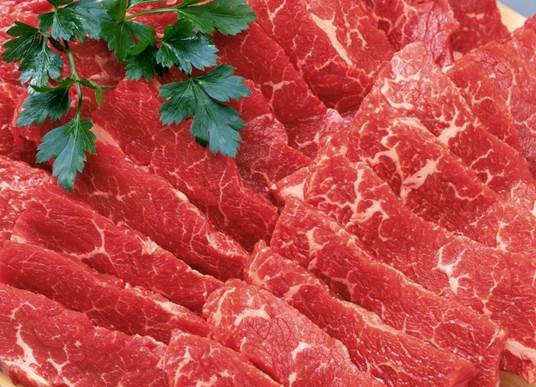Elimination diets are all the rage. Here, Bonnie Vaughan
finds out what you need to know before ditching a major food group
Are you tempted to ditch the wheat, amp up the kale and shun
red meat? It’s no wonder.
In an age when the diet secrets of celebrities with perfect
bikini bodies – even after baby – are broadcast 24/7, it’s easy to get caught
up in all the healthy eating hoopla. And besides, didn’t you Google ‘gluten
intolerance’ and discover that you have all the symptoms?
But here’s the catch. Arbitrarily eliminating entire food
groups for sustained periods of time can have major long-term health
consequences. In other words, your fabulous new diet may backfire on you.
We take a look at some of the most popular food elimination
trends, examine how they can affect your health, and show you how to ensure
your body is still receiving all the nutrients it needs. But please note: never
eliminate any major food group without seeking advice from a health professional
to determine your specific dietary needs.
“I don’t eat gluten”
Like fat-free, sugar-free and organic, the term gluten-free
has become synonymous with ‘better for you’. Indeed, increasing numbers of
Australians are avoiding wheat-based products – up to 22 per cent of women have
jumped on the trend, with more than two-thirds doing so with no formal
diagnosis of wheat intolerance, according to a 2011 study conducted by the
Grains & Legumes Nutrition Council.
Although it may be fashionable to claim to be gluten
intolerant or to suffer from coeliac disease (an immune response to gluten that
causes damage to the lining of the small intestine, impeding the body’s ability
to absorb nutrients), only one per cent of the population is coeliac, while
between 10 to 14 per cent may suffer from uncomfortable gut symptoms after
consuming wheat-based foods. That leaves a lot of people avoiding wheat for no
good reason at all.

Like fat-free,
sugar-free and organic, the term gluten-free has become synonymous with ‘better
for you’.
If you eliminate grains from your diet altogether, you’ll be
missing out on essential nutrients including B6, thiamine, magnesium and
folate, as well as protein and fiber. “We need fiber to keep our bowels
functioning daily,” says Teresa Mitchell-Paterson, senior lecturer in natural
therapies at the Australasian College of Natural Therapies. “It also helps us
to create good bacteria in our bowel, which is a protective factor against
certain diseases like bowel cancer.”
Mitchell-Paterson believes that many of our issues stem not
so much from wheat itself as from the amount we consume. “Instead of cutting
grains out,” she suggests, “you might want to limit them and increase the
amount of vegetables that contain large amounts of fiber, such as potato with
the skin on, all the leafy greens, broccoli and cabbage.”
If you must go gluten free
Replace wheat products with alternative whole grains that
offer similar nutritional value, such as amaranth, bulgur, buckwheat, quinoa,
millet or brown rice. The dietary fiber in fruit, vegetables and nuts alone
will not suffice – you need to maintain a healthy mix of foods that will
provide a variety of soluble and insoluble fibers, which work to control blood
sugar levels and maintain gut health.
“I don’t eat dairy”
Many people have self-diagnosed lactose intolerance due to
symptoms like gas, bloating and loose bowel movements after consuming
milk-based products. In Australia, up to five per cent of Caucasians and up to
75 per cent of non-Caucasians are lactose intolerant, which means they are
lacking in lactase, an enzyme in the digestive system that helps break down
lactose in food.
Some people suffering from irritable bowel syndrome (IBS)
may experience the same symptoms, but their problem may be a difficulty with
tolerating fat. To make matters worse, many health gurus have branded dairy as
bad news, citing risks that range from allergies and sinus problems to type 1
diabetes.

Many people have
self-diagnosed lactose intolerance due to symptoms like gas, bloating and loose
bowel movements after consuming milk-based products.
However, dropping dairy means you miss out on a valuable
source of protein and calcium – which is especially problematic for women, who
need a recommended daily intake of 1,000mg to 1,300mg. “Some studies show
calcium absorption is better when it’s consumed through dairy foods than when
it’s been added into alternative milks like soy and almond,” says Aloysa
Hourigan, senior nutritionist at Nutrition Australia. “Milk fat is also a good
source of fat-soluble vitamins A and D.”
Before ditching all dairy, consider consuming raw, organic
dairy products instead, in moderate quantities.
If you must go dairy free
Opt for calcium-fortified soy alternatives. And before
taking calcium supplements as a substitute, have your vitamin D levels tested.
If your levels are too low, your body won’t absorb the calcium. Many health
experts are concerned the calcium in supplements may also invade the arteries,
causing fatty plaques to harden and increasing heart disease risk.
“I don’t eat red meat”
High red-meat consumption has been blamed for increasing
cancer risk and heart disease. But studies point to processed meats, which are
high in salt and preservatives and low in nutritional value, as the true
villains. Lean, unprocessed red meat is an excellent source of protein as well
as zinc, vitamin B12 and harem iron, which is more easily absorbed in the body
than the non-harem iron found in whole grains, nuts and legumes.
“If you suddenly drop red meat, it takes a while for your
body to get used to that lower level of harem iron in the diet, especially if
you were a big meat eater before,” warns Hourigan.

High red-meat
consumption has been blamed for increasing cancer risk and heart disease.
If you must go red-meat free
Poultry and fish contain only small amounts of harem iron,
although chicken liver and oysters are particularly high. Alternative iron
sources, such as legumes, nuts and whole grains, are all rich in non-harem iron
– but to boost absorption, you need to complement these foods with ingredients
rich in vitamin C. Molluscs, fish and caviar deliver high doses of B12.
“I don’t eat carbs”
While eliminating starchy carbs and focusing on proteins,
fruits and vegetables instead has been shown to assist with weight loss, it can
have repercussions. Go too hard on fatty proteins and you may clog up your
arteries and increase your risk of heart attack and stroke. Avoid starch
altogether and you may suffer from fatigue and sore muscles, especially if you
do a lot of exercise. “Carbs are the preferred source of fuel for the body,”
says Hourigan. “People on a very low-carb diet have to use fat and protein to
supply enough energy. That means there’s less protein left to do the work it’s
supposed to do, such as repairing the body and producing hormones and enzymes
and supporting cell structure.”
If you must go low-carb
Make sure you’re getting some carbohydrate in your diet that
contains resistant starch to regulate your blood glucose levels and keep your
gut health sound. Include foods such as sweet potato, oats and legumes.